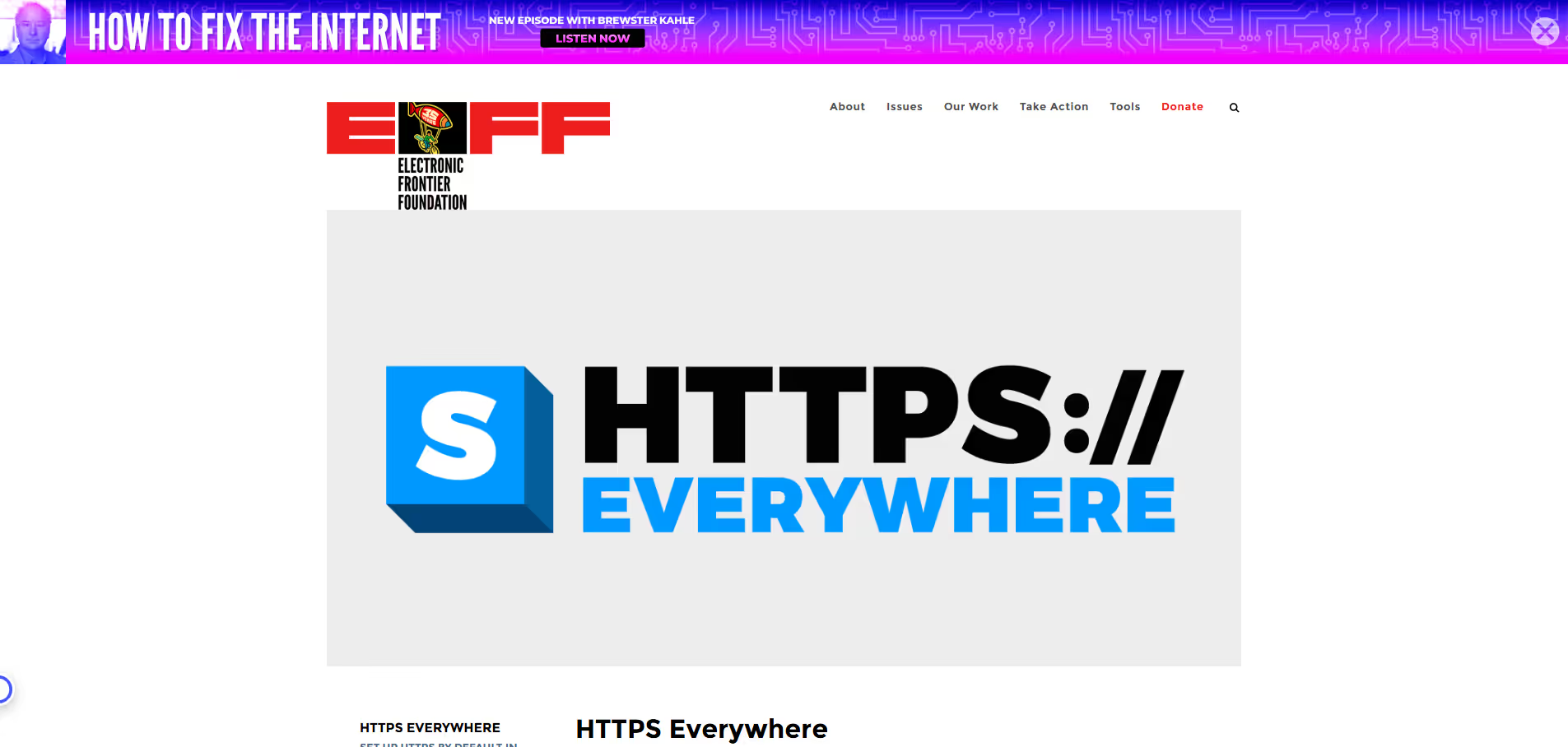HTTPS Everywhere
Description
Key Applications
- Secure Web Browsing: Automatically encrypts connections to websites, protecting against passive eavesdropping and man-in-the-middle attacks.
- Data Protection: Safeguards sensitive information, such as passwords, financial details, and personal communications, during transmission.
- Privacy Enhancement: Prevents internet service providers (ISPs) or network administrators from easily monitoring your browsing activity on supported sites.
- Public Wi-Fi Security: Provides a crucial layer of protection when using unencrypted or insecure public wireless networks.
Who It’s For
Pros & Cons
How It Compares
- Versus Browser Built-in HTTPS-Only Mode: While modern browsers increasingly offer built-in HTTPS-only modes, HTTPS Everywhere often provides a more extensive and proactively maintained set of rulesets, especially for a broader range of older or less common sites that might not fully implement HSTS (HTTP Strict Transport Security).
- Versus VPNs: HTTPS Everywhere secures the connection between your browser and the website. A VPN encrypts all your internet traffic between your device and the VPN server, masking your IP address. They serve different but complementary security functions; HTTPS Everywhere is specific to web protocol encryption, while VPNs offer broader network anonymity and security.
- Versus Ad Blockers: Ad blockers prevent ads and trackers from loading. HTTPS Everywhere focuses solely on ensuring encrypted data transmission. They address different security and privacy concerns, often used together for comprehensive protection.
Bullet Point Features
- Automatic HTTPS Rewriting: Forces encrypted connections by rewriting HTTP requests to HTTPS on supported websites.
- Extensive Rulesets: Utilizes a large and continuously updated database of rulesets developed by the EFF to identify HTTPS-enabled sites.
- EASE Mode (SSL Observatory): Optionally helps identify and report potentially compromised or untrustworthy SSL certificates.
- Secure Cookies: Helps prevent certain types of session hijacking by ensuring secure cookie flags are set where appropriate.
- Open Source: Developed by the Electronic Frontier Foundation, it is free and open-source, promoting transparency and community contribution.
Frequently Asked Questions
Find quick answers about this tool’s features, usage ,Compares, and support to get started with confidence.

HTTPS Everywhere is a browser extension developed to enhance online security by automatically redirecting users to secure HTTPS versions of websites whenever available.

It ensures that users connect to websites via encrypted HTTPS connections, protecting sensitive data from eavesdropping, tampering, or interception while browsing the internet.

Yes, HTTPS Everywhere is very user-friendly. Once installed, it works automatically in the background without requiring any configuration, making secure browsing simple for all users.

HTTPS Everywhere works primarily as a standalone browser extension, but it complements other security tools like VPNs, password managers, and privacy-focused browsers to enhance overall online safety.

It is ideal for any internet user looking to improve online security and privacy. Benefits include encrypted connections, safer data transmission, protection from malicious attacks, and a more secure browsing experience.





.avif)




